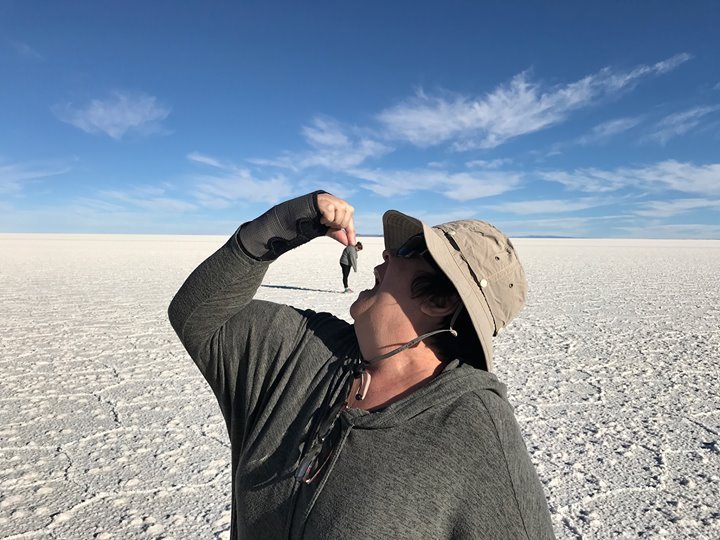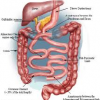-
Content Count
29 -
Joined
-
Last visited
About HP62442
-
Rank
Intermediate Member
- Birthday 04/06/1992
About Me
-
Gender
Female
-
City
New York
-
State
New York
Recent Profile Visitors
-
 HP62442 changed their profile photo
HP62442 changed their profile photo
-
mountaingirlCO started following HP62442
-
-


Recovery for VGS vs. MGB
HP62442 replied to HP62442's topic in Revision Weight Loss Surgery Forums (NEW!)
THANKS! It’s a three day multiple choice/essay exam. I’d fail any type of physical test pre-surgery! -
HP62442 started following Is the sleeve right for me? BMI 27.4, Recovery for VGS vs. MGB, DS for lower BMI revision and and 6 others
-
I'm having a revision from VSG to MGB in February. For those have done this, how does the recover differ? Were your energy levels different? I have an important test three weeks after my surgery date, which may be ill advised, but it was the only time I could get off work. After the VSG, I went back to work after one week and it was mostly ok.
-
I'm currently scheduled for a MGB in February (from a GS). My surgeon and I only talked about the MGB, and not DS. My BMI is 36.6 (with two co-morb.), but I really want this to be my final surgery (no more revisions!). Should I talk to my doctor about the DS? Is recovery/life style really that different than a MGB/GB? I'm a self-pay, so insurance is not a concern. I have to take Rexulti for depression (I've tried stopping and it went poorly) and it caused me to regain 30 pounds, so I'm particularly concerned about weight regain. Thanks in advance!
-
I am undergoing a revision from gastric sleeve to a MGB in February, and I'm a little worried about my meds. I currently take Vyvanse 70 mg and Adderall 20mg 3x daily. (yes, I am aware that is a crap ton of stimulants). Anywho, how have people's experiences been taking these meds post MGB? Do you crush the IR Adderall tablet? Does it work as well? I assume the Vyvanse doesn't work as well because its extended release. Has anyone switched to IR Ritalin or the patch? What dose were you switched to? The highest patch doesn't seem equivalent to 70mg of Vyvanse and Methylphenidate hasn't worked super well for me historically. To quote my previous psychiatrist after hearing my new doc switched me to it, "But that's for children!" I currently also take a prescription NSAID for migraines 1-2 times a month. Do I have to stop taking that? I assume so but Triptans (maxalt, sumpitriptan) make me super sick. What have you switched to? Tylenol will not cut it. Cambia has been the holy grail of migraines for me, so I'm bummed to stop taking it. Of course, I'm going to speak to my neurologist, psychiatrist, and surgeon, but would love your personal experiences. Thanks!
-
I had surgery on 3/12, and all my incisions are healed with the exception of a tiny opening in my main incision (on the end).I went to urgent care and they said it was not infected and they put some steristrips on it. The opening was only half of a cm, and yet, it refuses to heal! That was maybe 1-2 weeks ago. I've been keeping a bandaid on it as instructed. While there is still no sign of infection, there continues to be drainage. Has this happened to anyone else? Will it ever heal?
-


What's wrong with a straw?
HP62442 replied to logicwand's topic in POST-Operation Weight Loss Surgery Q&A
My doctor actually recommended to use a straw to take smaller sips. I avoided it because I had seen all the warnings about straws.But Ifind I can drink more because I don't accidentally gulp, and haven't had any pain with using a straw. I've avoided all carbonation. I just find it super annoying that one of the reasons doctors give to avoid carbonated drinks is that they are too sugary. It's constantly cited as a reason, as if sugar free carbonated drinks don't exist. -
-
-
-
-


I think my depression is easing
HP62442 replied to Mattymatt's topic in Gastric Bypass Surgery Forums
I started the process of switching antidepressants before surgery for unrelated reasons. (in retrospect this was a poor decision). It was going well, and then a few days before surgery I was a mess-- crying in the bathroom at work. It was not pretty. This continued until a few days after surgery. I think the pre-op diet ( and sudden loss of sugar) was the major reason. Now, my depression is better than it was before surgery. Optimisk, I think if you have dealt with depression before, and have the tools to deal with it (medication or relationship with a psychiatrist or a therapist), it's manageable. I think part of the worst part of depression is that it can sneak up on you, and then you live in denial about being depressed. And then you needlessly suffer for like three months, because you've convinced yourself nothing is wrong. But if it has happened before, you can be more proactive. -
-


Anyone with an IUD have issues?
HP62442 replied to katibugg's topic in POST-Operation Weight Loss Surgery Q&A
When I had the Mirena, I spotted constantly for three years (vs. no period at all with the implant). My doctor said it was a different hormone or at least a different form of the hormone. So it seems you can respond differently to them. Even if my period returns full time with weight loss, I'm staying away from the Mirena. It works really well for some people, but the spotting and cramps were not pleasant for me. -
I lost about 10 pounds my first week after surgery, and this week (week 2) I've only lost 3 pounds (and have since gone up 2 pounds). I've been having some trouble with constipation and dehydration this week. I also had IV fluids a few days ago (though it was for other reasons). So I thought it might be a function of that. But I'm concerned I might be having too much sugar. I've been having a small cup of apple juice (100 calories) and diluted gatorade most days (maybe 100-150 calories total). My protein shakes and soups have zero sugar. My doctor said I could have juice and gatorade, but I'm seeing a lot of people say they consume only sugar-free drinks. Could that be the reason for the stall? I'm getting the sense that my body is having trouble digesting all the straight protein. And without the juice and gatorade, I'm concerned about getting enough calories since I already get super dizzy upon standing.
-
-
-
-


Anyone with an IUD have issues?
HP62442 replied to katibugg's topic in POST-Operation Weight Loss Surgery Q&A
I had a very similar issue. I had no period for two years with an implant (in my arm), and one week into my pre-op diet, I got my period with cramps. Now, 9 days post-op, I have what I assume is a yeast infection (I'm guessing from the antibiotics). Feel better! -


Is the sleeve right for me? BMI 27.4
HP62442 replied to Mgr98's topic in Gastric Sleeve Surgery Forums
Generally, in the US you need to have a BMI of 40 (with no other issues), a BMI of 35 (with a comorbidity), or sometimes a BMI of 30 with serious metabolic issues. I understand the challenges of struggling with weight. It doesn't suck any less because you are 20. (I'm 25). If you have 15-20 pounds of excess weight, you can expect to lose 9-14 pounds with a gastric sleeve on average. (The average excess weight loss is 60%). The surgery has major risks, which can be life threatening. You could have an adverse reaction to anesthesia, get a leak and risk sepsis, become so seriously dehydrated you have to be admitted to the hospital, or get an infection. You face a lifelong risk of vitamin deficiencies. I recently watched the show "Big Ward" on Netflix, and one of things that struck me was the surgeon asking the patient what "Morbid" Obesity (a BMI of 40 or more) meant. He said it meant deathly, as in obesity leading to death. When your obesity is life threatening it can make sense to undergo a procedure that entails risk. The benefits outweigh that risk. Obviously, every person is different, and it can be worth it with a 35 or 30 BMI. But it is a serious surgery not guaranteed to work. It would be a lot of pain and misery for 9-14 pounds. -
-
-
-


Mexico Tips and Thoughts (Bariatric Mexico)
HP62442 replied to HP62442's topic in Mexico & Self-Pay Weight Loss Surgery
Yeah, I don't think my experience was indicative of people's experience in Mexico generally at all. I'm feeling pretty great now (6 days post-op), but it was a hellish 48 hours. -


Perpetually Dry Chapped Lips
HP62442 replied to FluffyChix's topic in General Weight Loss Surgery Discussions
When I was on accutane (for acne), I had perpetually chapped lips that would bleed. I found lip scrubs were super helpful. They moisturize and get the dead skin off, so you aren't tempted to pick at them. I really love Fresh's lip products. $20 for a lip scrub is rough, but man was it worth it. Alternatively, ELF makes one for $3 which is great too. -


Mexico Tips and Thoughts (Bariatric Mexico)
HP62442 posted a topic in Mexico & Self-Pay Weight Loss Surgery
I had surgery with Dr. Verboonen at Bariatric Mexico earlier this month and thought I would share some thoughts and tips about having surgery in Mexico. I haven't had any complications (knock on wood), and am doing well. While I don't regret it, if I had to do it over again I would choose a different surgeon. 1. Ask about their pain management plan. I was off pain meds by my flight home two days after surgery BUT there was terrible pain management the first 36 hours or so. I woke up in serious pain. I told them I was in pain in the recovery room, and was told it was normal. After that they started ignoring me, and the staff was eating chips in the recovery room. After I started crying, they gave me an injection of something. The first night after surgery I was in so much pain I considered asking them to take me to a hospital. In retrospect, they seemed to rely solely on ketorolac (an NSAID). The language barrier really prevented a discussion of what pain meds I was being given. For me, it was not enough. I don't mean to scare you off from Mexico, but in retrospect I should have been more persistent on learning about their pain management plan. 2. Waiting and never meeting the surgeon. I was picked up at 8:30 and finished all my pre-op labs by 11:30 or so. I then waited 4 or 5 hours to have surgery, which is not really what you want when you are nervous. I was told I would have a full consultation with the surgeon, but I never met him before or after. I also never met with the anestesologist. The other doctors and staff made me feel secure and comfortable, but in retrospect it was nowhere near as advertised. 3. Immediate Aftercare. After the first night, they changed to a different recovery room. I had to walk outside of the building in a hospital gown to get to the new place, only to discover that my bed was in what I can only describe as the lobby. It was right next to the door to the street, and you had to walk through the lobby area to get to the actual rooms for the other patients. When I complained, they did say I could stay at the hotel for the night instead. But since I was traveling alone and they would have to take out the IV (raising my concerns about dehydration), I elected to stay there. 3. "Nutrition" information. I was given a one page sheet of dos and don't. It was rushed and took about five minutes as I was leaving to go to the airport. The surgery went well, which is the most important thing. But I wouldn't say it was comfortable experience. -


What to expect , Mexico april 2018??
HP62442 replied to Loveltiitii's topic in Mexico & Self-Pay Weight Loss Surgery
I travelled alone, and was completely fine! There were a few other patients with me, and they were super friendly.









